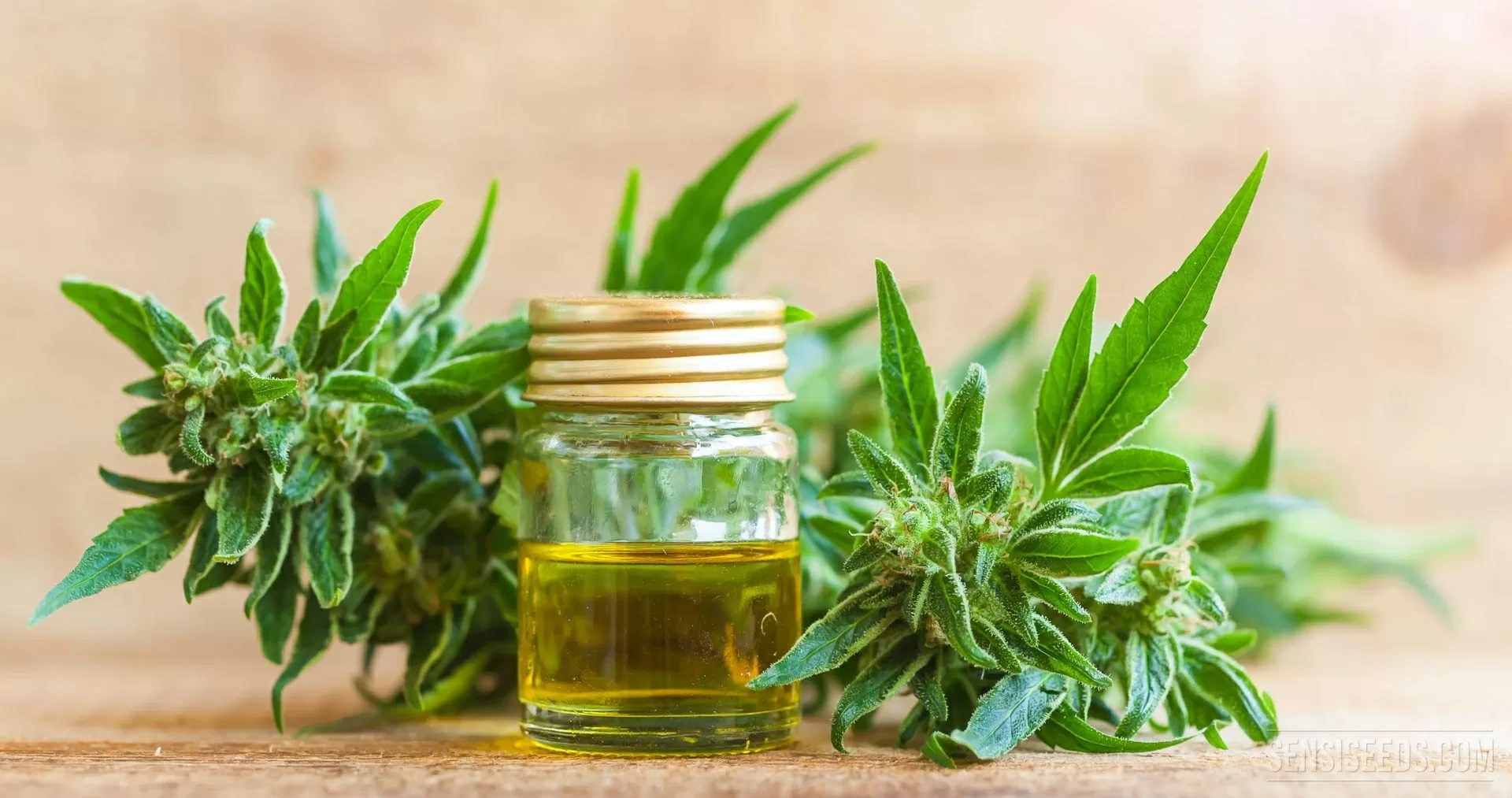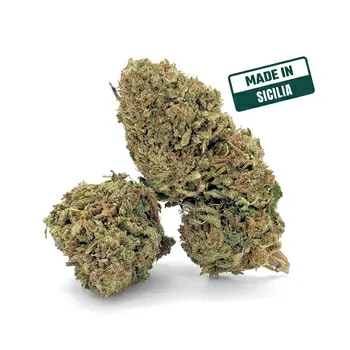Cannabidiol, also known as CBD, is one of the active ingredients commonly found in cannabis or sativa plant, within which more than 80 different chemical substances known as cannabinoids have been identified over the years as a result of numerous studies and research. And while THC or tetrahydrocannabinol is in fact the predominant active ingredient in cannabis extract, cannabidiol still accounts for a fair 40%.
The effects of CBD or cannabidiol are manifold, and until a few years ago, the main player was undoubtedly THC, due to its psychoactive action. Today, the scientific community has focused on the therapeutic potential of cannabidiol, which can effectively treat many diseases without having to resort to potentially harmful pharmacological therapies.
How long does it take for cbd to take effect? Main effects of cannabidiol
Cannabidiol or CBD is nothing more than a metabolite of cannabis, an active ingredient that, after undergoing an initial special transformation process, becomes highly assimilable by the body, which can then benefit from its characteristic beneficial effects.
While THC is responsible for the so-called 'high', it has psychoactive effects and a permanence in the body of the marijuana user. CBD has no psychoactive effect, which means that it does not affect the faculties of the brain or lucidity in any way.
One of the peculiarities of cannabidiol is that it is not very water-soluble, making it difficult to dissolve in water. It therefore requires the use of a fat to promote its solubility, making it more assimilable by the body. CBD is in fact an acidic molecule, but in order for it to become more active and therefore of better quality, it must be made neutral through what is commonly known as the 'drying process'.
Over the years, it has become clear that there are many positive effects of taking cannabidiol.
Numerous studies and research have shown that it has anti-inflammatory properties and that it is perfectly capable of curbing conditions that only a few years ago were considered irreparable. It is one of the most effective painkillers in the treatment of cancer, and is also particularly useful against epilepsy, neurodegenerative diseases such as Alzheimer's, and rapidly curbs schizophrenia, depression, insomnia and anxiety.
The therapeutic use of cannabis has ancient origins: cannabidiol has been used medicinally for millennia, although around the 1930s, the sale of cannabis sativa was banned mainly for socio-political reasons. It is only recently that the scientific community has begun to show a growing interest, investigating its properties in depth and arriving at results and discoveries that are certainly noteworthy, destined to shatter all the various 'metropolitan legends' circulating about cannabis, through scientific evidence corroborating its efficacy as well as its benefits.
In 1973, American researchers at John Hopkins University discovered that the human brain has an endocannabinoid system, characterised by specific receptors capable of interacting with endocannabinoid substances produced naturally by the body and similar to the cannabinoids commonly found in cannabis. The human body has therefore been shown to have a natural predisposition to the uptake of cannabinoids.
The endocannabinoid system tends to be activated spontaneously and under conditions of well-being and pleasure, thus stimulating the immune system. It promotes relaxation, aids digestion and nutrient assimilation, improves sleep quality and eases the removal of traumas, providing greater mental stability and tranquillity so that everyday life is more peaceful, always to the detriment of stress and common malaise.
The human body naturally produces these endocannabinoids, which are even present in the mother's milk. They help regulate the normal functions of the nervous system, the cardiovascular system, the immune system and the reproductive system. However, in some genetically predisposed individuals, the endocannabinoid system may not function properly, in which case cannabis helps to restore the body's natural balance via receptors that can promote healing.
Therapeutic and medical applications of CBD
Regular intake of cannabidiol is therefore recommended to solve and reduce a wide range of diseases and their symptoms. In fact, CBD is a powerful anti-oxidant and anti-inflammatory agent that is even able to curb acne, thanks to its strong sebum-regulating action aimed at solving a wide range of skin problems. Cannabidiol is widely used both as a sedative and as an analgesic: it can rapidly relieve menstrual pain, migraines, rheumatic complaints and all kinds of inflammatory phenomena. Among the main benefits reported by regular users of cannabis is its ability to effectively combat depression, anxiety and insomnia, promoting relaxation and rest, and giving the body a pleasurable state of well-being.
It also helps to combat stress, acting mainly on the symptoms of stress, counteracts nausea, and helps to control and curb the effects of serious illnesses such as atherosclerosis, cardiovascular disease, diabetes, muscular problems, post-traumatic stress disorder, epilepsy and panic attacks, as well as neurological disorders in general. It is also a valuable aid in the treatment of chronic pain, rheumatoid arthritis, depression and obsessive-compulsive disorders, making it one of nature's most valuable allies for humans.
Many of the aforementioned conditions have reached a stage where cannabis is more useful and effective than conventional drug therapies, and is perfectly capable of providing almost immediate relief. Today, cannabidiol or CBD is one of the main protagonists of the most varied scientific research aimed at demonstrating its real therapeutic efficacy in an increasingly concrete manner, thanks also to its ability not to generate dependence and its ability not to present significant contraindications.
What are beneficial effects of cannabidiol
The benefits of cannabis use are manifold: among the main ones is its marked ability to act as a pro-apoptotic and anti-proliferative agent, inhibiting the proliferation of cancer cells. This was demonstrated in a 2006 study published in the Journal of Pharmacology Experimental Therapeutics by a team of researchers at the University of East Anglia who discovered the cellular mechanism by which CBD spontaneously induces breast cancer cell death.
CBD behaves as a non-toxic compound, and the same studies showed that cannabidiol doses of 700 milligrams administered daily for six consecutive weeks revealed no toxicity in the test subjects, suggesting long-term use for therapeutic purposes.
Among the advantages of taking cannabidiol is its characteristic analgesic action: scientific evidence shows that cannabinoids are useful in treating pain by inhibiting neuronal transmission in pain pathways. Evidence of this is provided by a 2012 study published in the Journal of Experimental Medicine, which found that cannabidiol significantly reduced inflammatory and chronic neuropathic pain in rodents, without the use of analgesic drugs. The same researchers therefore suggest CBD, as well as all non-psychoactive components present in cannabis, as the 'new class of therapeutic aids' aimed at treating chronic pain. Due to its role as a natural anti-inflammatory agent, cannabidiol shows particular promise in the treatment of inflammatory and autoimmune disorders.
Today, cannabidiol also plays a significant role in the treatment of schizophrenia-related disorders and symptoms. Research shows that CBD has a significant anti-psychotic effect, although the mechanism of action is still unknown. The pharmacological profile of cannabidiol appears to be very similar to that of atypical antipsychotic drugs, as has been revealed by a variety of behavioural and neurochemical techniques applied to animals.
Over the years, numerous studies have been able to determine the anxiolytic effect of CBD. Cannabidiol has been widely shown to reduce anxiety in patients suffering from social anxiety disorder, and to be effective in curbing panic attacks, obsessive compulsive disorder, as well as so-called social anxiety and post-traumatic stress disorder.
An interesting study conducted in 2011 compared the effects of a public speaking simulation on both healthy subjects and patients undergoing treatment for social anxiety disorder: cannabidiol was administered as a placebo to 24 patients suffering from social anxiety disorder but not previously treated, one and a half hours after the performance. It was found that with the CBD pre-treatment, anxiety was significantly reduced as well as cognitive dysfunction and feelings of discomfort, resulting in an optimal performance, and reducing anxiety in anticipation of the speech.
Cannabidiol also has numerous advantages in the treatment of epilepsy, especially if resistant to drug therapies. A survey report involving parents of children with treatment-resistant epilepsy showed unexpected results: more than 84 % of parents reported a significant reduction in the frequency of seizures in their child, thanks to the intake of CBD.
Cannabidiol has also been found to be a valuable aid in the treatment of neurodegenerative diseases. It has been discovered that cannabidiol prevents the toxic effects of neuroglutamate and radical oxygen species (ROS) in the brain, thereby preventing brain cell death. CBD has a superior antioxidant effect to Vitamin C and E, making it a potential therapeutic agent even for diseases such as Alzheimer's and Parkinson's.
Cannabis has been used for centuries as an anti-nausea and anti-vomiting agent and has been the focus of numerous studies, many of which have revealed that, among the more than 80 cannabinoid compounds found in marijuana, THC as well as CBD would help combat nausea and vomiting. However, researchers have found that cannabidiol acts in a dysphasic manner, which means that, when used in low doses, it is a perfect anti-emetic, while in high doses it may increase the symptom or have no effect at all.
A 2006 study found that taking CBD significantly reduced the incidence of diabetes by 86 % in non-obese, untreated diabetic mice, and by 30 % in those treated with cannabidiol. Researchers also found that prolonged use of cannabis can reduce fasting insulin levels by more than 16 %, thus protecting the heart from vascular damage also caused by excessive glucose levels. CBD has also been shown to be perfectly capable of reducing vascular hyperpermeability.
CBD, in combination with THC, is also effective and well tolerated in the treatment of multiple sclerosis, as well as in the treatment of muscle contraction, pain, sleep disturbances and urinary incontinence in sufferers of this severe autoimmune disease. Thanks to its remarkable anti-inflammatory effect, cannabidiol provides relief from joint pain in the presence of rheumatoid arthritis by reducing joint destruction and the progression of this disease. It also helps improve mobility by stemming inflammation within 5 weeks of treatment.
Last but not least, cannabis use improves the quality of sleep in those suffering from chronic insomnia, improves appetite and is useful in the treatment of eating disorders such as anorexia and bulimia, and helps marginalise multiple skin conditions such as acne and psoriasis. Those suffering from depression may benefit from CBD, which has calming and relaxing powers even in the presence of severe anxiety states.
Further studies have confirmed that cannabidiol can reduce intestinal disorders such as colitis. In combination with THC, it is said to reduce inflammation, alleviating symptoms such as abdominal pain, diarrhoea and reduced appetite. It is therefore useful in normalising intestinal motility.
Negative effects of cannabidiol
In general, the negative effects of cannabidiol are not particularly significant. It has been shown that even with prolonged use at high doses of around 1500 mg per day, cannabidiol is still well tolerated by humans, although attention must be paid to a number of specific cases.
CBD helps to counteract insomnia by creating a state of widespread relaxation, which is why it is not advisable to drive after taking it, especially if you are tired or in the evening. Cannabis should not be taken as an interaction with drugs that may cause drowsiness, as cannabidiol itself tends to neutralise the activity of certain enzymes that help to dispose of certain drugs once they are in the liver.
Cannabidiol also significantly lowers blood pressure, which is why its use should be avoided, especially if you suffer from hypotension or very low blood pressure. On the other hand, it is recommended for those suffering from hypertension. Similarly, it is better not to abuse it in cases of Parkinson's disease, as cannabinoids may increase tremors.
If you tend to suffer from dehydration, it is important to be aware of the fact that CBD causes dry mouth: although this is not a real side effect, it is always necessary to replenish fluids after taking cannabis, introducing enough water to reduce discomfort.
How to take and dosege CBD
CBD is commercially available, including on weed shop online, in different formulations: cannabis inflorescences, CBD crystals or CBD oil are usually available. The concentration of cannabidiol is lower in inflorescences, which are commonly taken in the form of a 'spliff' and smoked, and are therefore absorbed by the body to a greater or lesser extent, depending on whether the cannabis is light or medicinal.
However, the other formulations also offer varying concentrations of CBD depending on the desired effect: it goes without saying that if a constant but prolonged effect is desired, the ideal solution will be a product with a lower concentration of cannabidiol taken several times during the day. On the other hand, for an immediate but less long-lasting effect, products with a higher concentration of CBD are more suitable.
If burning the inflorescences is not particularly appreciated, it is possible, for example, to turn to CBD oil, which is extracted in different ways, often using olive oil as a vehicle to preserve its integrity and effectiveness. In this case, it is taken sublingually: a few drops placed under the tongue and then swallowed have almost immediate effects, although it can also be used as a condiment in food.
Another alternative is cannabidiol crystals, which also do not need to be burned: they must be ingested and can be used in all kinds of recipes such as cake mixes, biscuits or baked goods, provided that they are added to a fat such as butter or oil to ensure the optimum concentration of active ingredient and its stability.
 Italiano
Italiano Español
Español English
English Français
Français Deutsch
Deutsch

